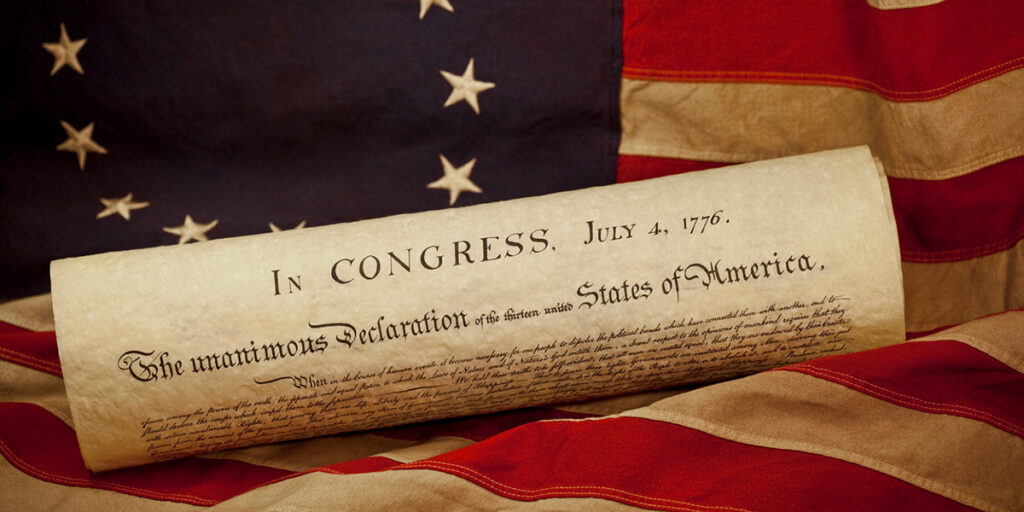Something which perhaps got lost in the constant headlines of trade wars and politics over the Summer was a decision that Corporate America made. It came from the Business Roundtable. Created in 1978, this collection of nearly 200 CEOs of America’s largest companies, surprised the business world with a statement reframing the purpose of business and corporations as “stakeholder” value, not solely “shareholder” value. This is a departure from the previously held belief emphasized by world-renowned economist Milton Friedman, that a corporation’s sole obligation is to maximize value for its shareholders. Today’s CEOs came out against this purpose in isolation. They expanded their focus beyond just shareholders, to all stakeholders, which include its employees, its customers and its communities. It doesn’t mean that all issues will be measured with equal value. There has been a multi-year movement in place for companies to be better stewards for society. Consumers have put a premium on this subject, and have in many aspects chosen to support and do business with companies who share their values. As far as I’m concerned, that’s just good business. Investors have done so too.
Milton Friedman was a fascinating individual. He was brilliant. He was opinionated. He was certainly controversial. In fact, he seemed to relish it. Born in New York. Died in San Francisco. Friedman believed what he believed and was always quick to support his convictions. Milton Friedman was the ultimate free-market guy. He loathed government involvement. He was razor-sharp and quick with a quote. Two of his most memorable are: “Underlying most arguments against the free market is a lack of belief in freedom itself” and “If you put the federal government in charge of the Sahara Desert, in 5 years there’d be a shortage of sand.” That one almost always gets a laugh. Friedman’s legacy has been mischaracterized occasionally. He cared about profits, no question. But he was quick to point out that he deeply believed in the Profit and Loss system. In his mind, it is the loss system which is most important because that is what is designed to get rid of poorly operated companies. “Too big to fail” was not in Friedman’s vocabulary. He died in 2006, a couple of years before the Financial Crisis. My guess is Milton Friedman would have hated that more companies did not fail during the crisis. We’ll never know. If you have the time and interest, search Milton Friedman’s interview on the Phil Donahue show 40 years ago. It’s quite an experience.
Back to the Roundtable. The Business Roundtable reiterated that the American economic model has raised the standard of living for generations. The American model is based on freedom, liberty and other enduring principles of our democracy. It promotes competition, innovation and consumer choice. American business has been a growth engine of success throughout our nation’s history. The Roundtable also acknowledged that not every American has participated in that success, and it has become more clear since the Financial Crisis. Investors and those that own assets have experienced a significant recovery over the decade. Asset prices have gone sharply higher. Those who live paycheck-to-paycheck or depend on a fixed income and can’t afford to save have struggled to get ahead while prices paid have increased. This group of executives said that too often, hard work is not being rewarded these days and not enough is being done for workers to adjust to the rapid pace of change in this digital economy. In response, the Business Roundtable has decided to modernize its policies and principles for the model American corporation.
There is so much negative rhetoric circulating around Corporate America and capitalism at large. It’s understandable. They earned it. The Financial Crisis caused so much pain, anger and distrust. Big business became a target and the word “profit” became a lightning rod. There have been calls for wealth distribution and more socialist approaches. The media seized upon the Business Roundtable’s refined purpose and framed it the way they wanted to and catered to their respective audiences. But digging through the details, it seems like a very pragmatic approach, which I find quite refreshing.
I’m a free-market guy, and believe that hard work and commitment to the greater good should be rewarded. Risk takers should be compensated for their risks taken if they’re successful and be prepared to suffer the consequences if they fail. It’s the backbone of the American Dream. Unfortunately, the dream has looked more like a mirage of late for some. Many Americans have been left behind. The American way is being questioned. That’s what this 2020 Presidential election is about. It’s what the 2016 election was about. I’m sure it will be the case in 2024 too. Donald Trump, Bernie Sanders and Elizabeth Warren have all tapped into this theme, with clearly very different approaches. Democratic presidential candidate Elizabeth Warren has proposed a plan that would require American companies to turn over part of their board of directors to members chosen by the employees. Bernie Sanders, also campaigning again for the Democratic nomination, says he would prohibit companies from buying back their own stock unless they offer a certain level of pay and benefits for its workers first. We’ve all seen President Trump verbally shame companies for moving jobs overseas and threaten to take more aggressive action against pharmaceutical companies for price gouging. The same issues are going on in Europe. Germany is facing it. Italy is facing it. France is facing it. In many ways, it started with Brexit. It still hasn’t been resolved. More on that subject on Halloween, which is when the formal Brexit is slated to take place. Though it appears that Brexit “can” might get kicked down the road yet again.
Western norms are being challenged. Free markets are under assault. Do they still exist? Did they ever really exist? Good questions. There really isn’t a clear answer. Tariffs, subsidies and currency manipulation are not new. The Trade War is attacking it head-on. An important key to successful business and commerce is having a set of rules and making sure everyone follows them. I sensed some of you laughing at the naivete of this statement. But it’s true. Without trust, what have we? The answer: next to nothing.
This new approach has been referred to as Moral Capitalism. “The free-market system is the best means of generating good jobs, a strong and sustainable economy, innovation, a healthy environment and economic opportunity for all.” That was a key message from the Business Roundtable. Apple CEO Tim Cook, Amazon Founder and CEO Jeff Bezos, JP Morgan CEO Jamie Dimon and Chevron CEO Mike Wirth are among the nearly 200 that comprise the Roundtable. There are just over 3,500 publicly traded American companies. The largest 500 comprise the S&P 500. These publicly traded companies account for less than one-third of the nation’s private-sector workforce and a tiny proportion of its 5.6 million employer firms. We are a small business. As an SEC registered investment advisor, we are held to the highest standard and act in our clients’ best interest at all times. Not everyone can say that in the Financial Services Industry. Not everyone can say that in Corporate America. But Big Business has great power and influence. Perhaps this new, formal and documented purpose for Corporate America is another step in the right direction during this period of division and contention. American History is full of them. America’s future will be too. The thing is, it was acknowledged from the very beginning. This is an imperfect union with an insatiable thirst for life, liberty and the pursuit of happiness. We never give up. That is the beauty of the American way.
Have a nice weekend. We’ll be back, dark and early on Monday.
Mike







